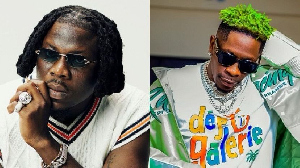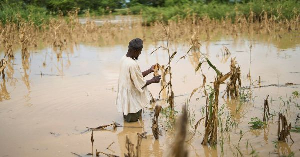In recent times, Ghana has witnessed serious corporate and economic failures on many fronts: the collapse of seven commercial banks, several savings and loan companies, and finance house companies between 2017 and 2019, the collapse of the national economy as witnessed between 2020 and 2023 with high levels of debt overhang, a high cost of living, rising inflation, and a and a worsening unemployment situation that were at a level that can be described as unprecedented in Ghana.
The above are attributable to the much-talked-about lack of economic diversification and high dependence on few export crops, high dependency on excessive borrowing for infrastructural development and even for recurrent expenditure, high debt repayment obligations denominated in an external currency, high cost on the service sector as opposed to the productive sector, massive corruption and wastage across board, and largely, the hatred to see others make progress in Ghana.
We have witnessed, over the years, institutionalised regulatory infractions with impunity.
This, however, leaves the question as to whether “the black man is truly capable of managing his own affairs.”
The General Attributes of ‘the Ghanaian’:
Generally, in Ghana, the community is everything. As a people, we share an immensely powerful bond with each other, and it is evident all throughout the country. For example, if you are eating next to a total stranger who does not have anything in front of him, our customs oblige us to say, “You are invited.” Everyone shares. This is heartwarming to visitors to Ghana to see such simple kindness between two unrelated individuals. Complete strangers may show up at funerals, weddings, or any other ceremony because all are welcome.
In Ghana, greetings are imperative; basic conversation is expected in most environments, especially when asking for something. It is considered impolite to get straight to the point; first one should question the other on their day and well-being. When you desire to ask a Ghanaian a question, you need to start it with ‘please,’ as it is usually considered that the one answering you is performing some favour when doing so. Closer friends frequently use a handshake, a kind of snap between one’s thumb and middle finger, for casual greetings.
We are a people of music and dance. We adore dancing!! We love soccer. We are largely casual in nature.
The resultant effect, in my view, is that, as a people, we detest following laws, rules, procedures, policies, and standards. We would prefer to do things in our own way. Where rules must be followed, we either do it blindly, forgetting their substance, or we are orchestrating how to circumvent such rules.
We are naturally averse to systems of accountability and lay credence to collective responsibility; when something goes wrong within an organisation, a community, or the nation as a whole, we would rather give it the colour of collective responsibility and do the firefighting.
Our casual attitude, even at the level of the state, regulators, corporations, etc., leads us to find only temporary solutions to our economic growth and developmental challenges. We adore speaking good English, even better than the owners of the language.
In doing so, we mostly lose out on the substance. In Ghana, systems don’t work; rather, people do. To us, face-to-face interaction is more effective than any programme or technology. It is a way to say that efficiency always comes second.
In the developed world, time is associated with money and productivity. In Ghana, we take it slowly and easily. These characteristics described by the Ghanaian are reflected in everything we do.
This characterization of the Ghanaian has a negative impact on our performances. I would demonstrate this by categorising ‘the Ghanaian’ as follows:
Ghanaian as Religious Bodies:
In my humble view, churchgoers and their pastors form part of our bigger challenges. There is some degree of religious bigotry, untruthfulness, extortion, and, in large part, a lack of accountability among the church leadership. The church has rather become a space for business where the poor are extorted using the very word of God that was intended to shape moral uprightness in any society. To muddy the waters, the politician is able to manipulate the leadership of the church.
Ghanaian as Family:
Family refers to biological associations, professional groupings, etc. Socialization and parenting in Ghana are largely built on pretense. The child grows up only knowing how to pretend to win favour from others. As a child and at a tender age, you are exposed to how to manipulate people to win their favour. For example, when your mother requires some favour from your father, her husband, at that moment she becomes more responsive to the needs of the husband. For the first time, you hear your mother calling him honey, sweetheart, etc. As soon as the need is satisfied, the relationship reverts to normal.
We therefore extend this same manipulative attitude to the workplace. Such workplaces become polarised, leading to poor organizational culture and terrible job output.
Ghanaian as the Professor, Lecturer (PhD), Tutor/Teacher:
The role of teachers is to help students learn by imparting knowledge to them and by setting up a situation in which students can learn effectively. He is expected to set the moral standard for the students to emulate. In Ghana, the situation is different. If your lecturer can photocopy someone’s book and sell it to a large number of students and make an income from it, if your lecturer makes the buying of his handout a condition for you passing his examination, if your lecturer would not review his lecture notes, which remain unchanged, for example, between 1980 and 2020, what character are you then acquiring as students?
Currently, our professors have become appendices to the political actors. They would blatantly support their wrongdoings. In Ghana, you will find that while the economic actors—market women, farmers, industrialists, civil society, students, etc.—are not served appropriately with economic policies, you will see or hear the professor vehemently justifying those. They fail to bring knowledge to bear on our economic forward march.
Academic researchers have little/no bearing on national development. Students engage in barter trade to acquire degrees etc. What kind of character are we building?
Ghanaian as Professionals; Banks/Banker, Accountant, Auditor, etc:
In Ghana, the moral question remains: how does one become professional when their background is largely pretense? Our professionals lack detailed knowledge and the requisite skills to discharge their jobs. Our professionals only depend on hearsay, misleading information, and half-truths in the discharge of their jobs.
Our audited financial reports are largely a misrepresentation of the facts, largely because the internal auditor did not do his job well, the internal control officer went to sleep, management lacked direction, and the external auditor told himself that his job was not to detect fraud. For him, management explanation is enough.
Any institution that has collapsed would have had weaknesses in their financials over the past five years. Who were the internal and external auditors of UT, Sovereign Bank, UniBank, Capital Bank, Heritage Bank, etc., and others that were bailed out? Do they not belong to the ICA/ACCA? Were they held accountable? No.3
How about the public sector issues of corruption, misappropriations, and misapplication of funds?
These institutions also have managers, internal auditors, and auditor generals. Are they being held accountable? What happens after the sitting of the Public Accounts Committee of Parliament?
Who follows up to ensure closure in those corrupt cases?
The writer is the Chief Executive Officer of Commodities Investments Ghana Limited.
Opinions of Thursday, 21 March 2024
Columnist: Constance Gbedzo















